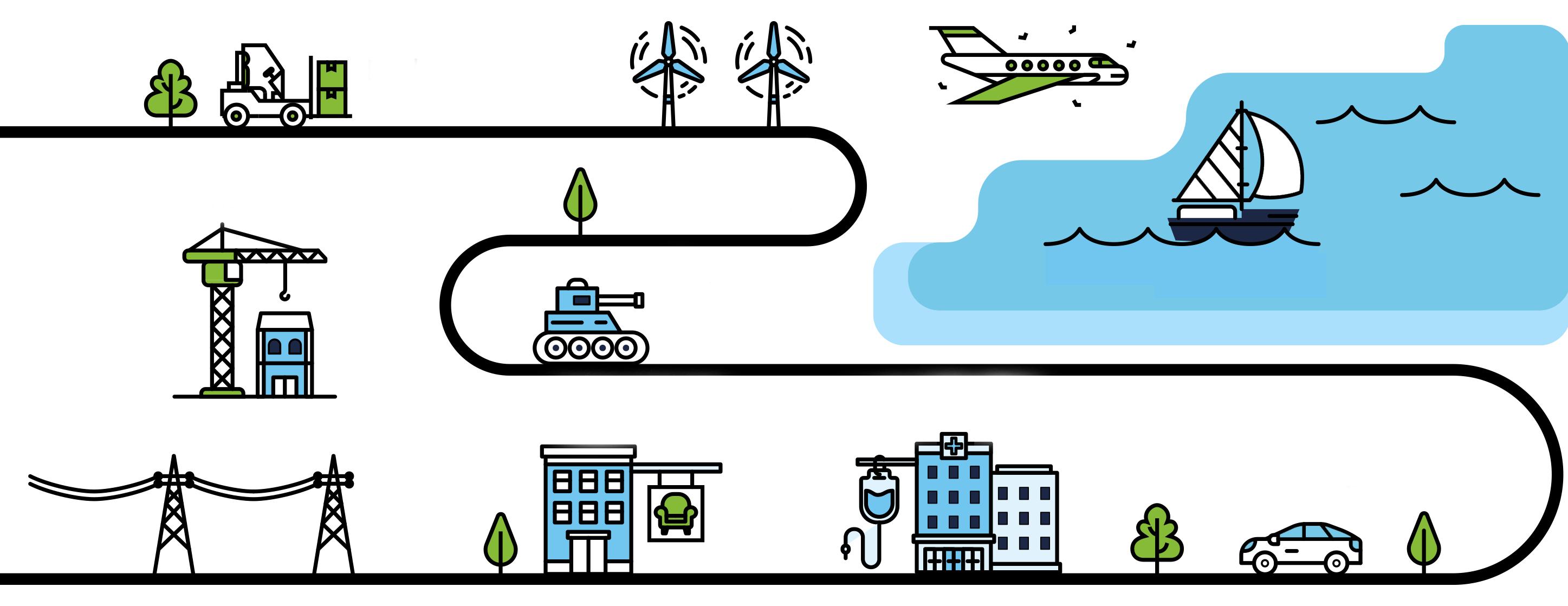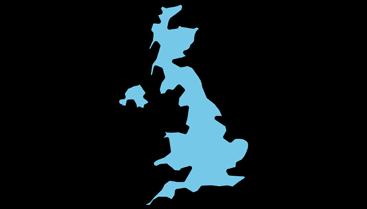
Election Manifesto
This document highlights the key policy requests for the UK plastics industry



This document highlights the key policy requests for the UK plastics industry

Recognise the UK Plastics Industry as a Foundation Industry that is strategically important for national and economic security.
Acknowledge the significant role the UK Plastics Industry can play in enabling the UK to become Net Zero by 2050.
Accelerate the reform of the waste collection and packaging legislation (Extended Producer Responsibility, Deposit Return Scheme and Simpler Recycling) and maximise its effectiveness.
Accept mass balance as a calculation method for the Plastic Packaging Tax (with a fuel exempt allocation method), to permit the scaling up of chemical recycling in the UK.
Enable the expansion and improvement of plastic recycling infrastructure by investing funds raised by the Plastic Packaging Tax.
Additional support for businesses to replace lost expertise and a further review of the effectiveness of the apprenticeship levy for manufacturers.
Work to minimise trade barriers and encourage regulatory alignment with the EU (where it makes sense); redevelop the overseas trade show support programme.
More grants for the deployment of energy efficient machines to assist industry’s decarbonisation, productivity and competitiveness.
Acknowledgement as a Foundation Industry would not only give our sector the recognition it deserves but also boost recruitment. The current negative tone from government towards plastics is contributing to long term vacancies that are damaging the growth of this key UK manufacturing sector.
Packaging
16% OF UK MANUFACTURING TURNOVER IS CONTRIBUTED BY PLASTICS
Plastic is used in virtually all areas of manufacturing and distribution and is strategically important for national security

Furniture
Energy Generation
Defence
Aerospace Marine
Healthcare

The UK is heavily reliant on the importation of raw material and it is critical that the UK continues to produce (or recycle domestically) plastic raw material in order to ensure the material can be used at times when national security is endangered. At the current time the UK produces around 50% of the polymer it consumes which is significantly behind many of our counterparts around the world.
Automotive

During the COVID-19 pandemic the UK plastics manufacturing infrastructure played a key role in ensuring the nation could fight the pandemic. Prior to COVID-19, less than 1% of PPE was manufactured in the UK but by December 2020 domestic supply reached 70%.
 Construction
Electrical
Construction
Electrical
Plastics are used in almost every sector of the UK economy including automotive, aerospace, construction, defence, energy, electrical and electronic, healthcare, food and drink, and agriculture. None of these sectors could function effectively without plastics.
Every job created in the plastics industry results in an additional 1.74 jobs in the wider economy: in manufacturing, commerce, transport, real estate, R&D and other services.
Top 3 Largest MANUFACTURING SECTORS IN THE UK (BY EMPLOYMENT)
Top 10 PLASTICS ARE AMONG THE UK’S TOP 10 EXPORTS
3.5m
MILLION TONNES PLASTICS MATERIALS PROCESSED
150,000 PEOPLE DIRECTLY EMPLOYED
1.7m MILLION TONNES PLASTICS MATERIALS PRODUCED
3rd
£28.7bn
PLASTICS INDUSTRY TURNOVER
5,700 COMPANIES IN THE PLASTICS INDUSTRY
£10.5bn
TOTAL VALUE OF EXPORTS

Net Zero: Acknowledge the significant role the UK Plastics Industry can play in enabling the UK to become Net Zero by 2050
Plastics has a critical role to play in enabling the UK to achieve its objectives of becoming net zero by 2050. This is because plastics artefacts are light in weight, durable in use and have outstanding properties of insulation. The industry wants to work with government to achieve Net Zero goals.
Examples of the role plastics can play in the journey to Net Zero:

Plastics are hugely resource efficient and underpin the economy. The material is deeply integrated into modern life, with most key sectors requiring plastic to function effectively.
Using alternatives to plastic would increase GHG emissions
In 15 out of 16 applications for plastic explored in a recent study, plastic had fewer emissions by 10%-90%
*See Source 3
Plastics pipes use to produce than concrete or iron and since lightweight they save on transport costs and emissions in the building industry.
Over the lifetime of the average car, lightweight plastic parts save around of petrol as a result – which would get you to and from New York almost five times!
3,000 litres

*See Source 4
And plastics play a key role in the production of renewable technologies...
Wind turbine blades are made from plastic composites.
Plastic is used in solar panels as it provides structure and prevent overheating. It can also encapsulate the silicon cells.
Source 3: www.pubs.acs.org/doi/full/10.1021/acs.est.3c05191
Source 4: https://bit.ly/denkstattreport
Plastic is needed to store and transport hydrogen.

Packaging Reforms: Accelerate the reform of the waste collection and packaging legislation and maximise its effectiveness
Extended Producer Responsibility, Deposit Return Scheme and Simpler Recycling
Ensuring that businesses understand their responsibilities and develop packaging formats that are recyclable.
Deposit Return Scheme
A consistent UK wide DRS scheme, including the material type, such as glass, size of containers and fee structure, is needed to increase recycling rates.
Simpler Recycling
Ensure there is the sorting infrastructure to prevent the mixing of paper and card, plastic, glass and metal.
Chemical Recycling: Accept mass balance as a calculation method for the Plastic Packaging Tax (with a fuel exempt allocation method), to permit the scaling up of chemical recycling in the UK
Lack of acceptance of mass balance in the UK is preventing companies from investing in facilities.
Industry needs a quick and definitive response to the recent consultation.
Mass balance allows the attribution of the ‘recycled characteristic,’ to one or several output products.
Mass balance allows the attribution of the ‘recycled characteristic,’ to one or several output products.
Recycling Infrastructure: Enable the expansion and improvement of plastic recycling infrastructure by investing funds raised by the Plastic Packaging Tax
The aim of the tax is to increase recycling but there is a shortfall of recycling capacity in the UK and concerns about uncontrolled imports of waste.
Tax funding should be ring-fenced and reinvested into the plastics recycling infrastructure and associated research.

Skills: Additional support for businesses to replace lost expertise and a further review of the effectiveness of the apprenticeship levy for manufacturers
Plastics is the third largest manufacturing employer in the UK.
Skilled workforces are the lifeblood of UK manufacturing and long-term vacancies are damaging the sector.
The BPF backs the calls from many industry bodies for a further review of the apprenticeship levy as it is failing to deliver the required investment in skills and training.
Trade: Work to minimise trade barriers and encourage regulatory alignment with the EU (where it makes sense); redevelop the overseas trade show support programme
The lack of clarity on regulatory alignment is damaging UK businesses manufacturing products for both.
UKCA marking is one example where divergence has added costs, delays and barriers to trade.
The EU remains the UK’s largest trading partner (for the plastics industry) with over 64% of our entire trade value.
Industry is calling for a strategic and operational approach to growing export trade. It is vital that the trade show support programme is redeveloped.
Energy: More grants for the deployment of energy efficient machines to assist industry’s decarbonisation, productivity and competitiveness
The threat of rising energy costs remains a major concern for BPF members.
Ensuring there are grants in place to help the transition to a low carbon economy is essential to business.

Founded in 1933, the British Plastics Federation represents the third largest manufacturing sector in the UK with over 150,000 employees. With a turnover of over £28.7bn, and one of the top ten UK exporting sectors, the BPF has 570 members who between them represent the entire plastics industry supply chain. This includes, raw materials (polymer producers and additive suppliers), processors (moulders, packaging companies and pipe/windows
manufacturers), recyclers/waste management companies and equipment suppliers.
The UK plastics industry is bristling with opportunities to take the UK forward in so many areas and this budget submission sets out the policy requests we would like to work with government on in order to grow this UK manufacturing sector that is so critical for national and economic security.
Yorkshire and Humberside,


British Plastics Federation
BPF House
6 Bath Place
Rivington Street
EC2A 3JE
Email: reception@bpf.co.uk Web: www.bpf.co.uk